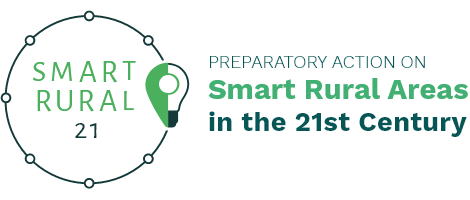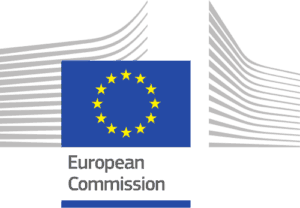Resources
The Resources Database contains relevant Smart Villages resources (including analytical reports, case studies, strategies, webpages, presentations, etc.) identified and collected in the framework of the Smart Rural 21 project (2020-2022) and later in the framework of Smart Rural 27 project (2021-2023). Many of the resources were directly developed in the framework of the Smart Rural projects (for instance smart village strategies or presentations made at events), whereas others are external resources identified to be relevant for Smart Villages. The database is continuously being enhanced until the end of the Smart Rural 27 project, and users can search by country, type of policy, type of organisation, type of resource or free keyword search.
A national guide on “Smart village, towards a French model for rural territories” has been published. The guide provides rural elected representatives a methodology and concrete examples to put into practice the Smart Village approach in their territory. It is divided into the following five sections:
- Smart village, what are we talking about?
- Methodological references
- Resources
- Initiatives and words of actors
- Lessons learned
Language : French
Type of resource : Guidelines
TUESI.LV (YOUARE.LV) – an online platform dedicated to telling inspirational stories of young Latvians through short videos – produced 20 videos on Smart Villages around Latvia during the summer of 2022.
Language : English
Type of resource : Video
A recording of the 3rd Smart Rural Communities’ Café, hosted by Raudanmaa (Finland) on 3 February 2021, with Bulgarian subtitles. The Café discusses Raudanmaa’s Smart Village strategy, how they are engaging the community in various local activities and how they are transforming their old school building into a new smart community hall, including a local educational/ therapeutic farm concept.
Language : Bulgarian, English
Type of resource : Video
A presentation on the Smart Rural 27 project experience. The presentation was given in the workshop “Enabling a supportive framework for Smart Villages through the Smart Rural 27 project – How to get involved?” at the Smart Rural 21 project’s Final Conference of 17-18 October 2022 in Sopot, Poland.
Language : English
Type of resource : Presentation
A presentation on the Smart Rural 27 project’s Cypriot Taskforce experience. The presentation was given in the workshop “Enabling a supportive framework for Smart Villages through the Smart Rural 27 project – How to get involved?” at the Smart Rural 21 project’s Final Conference of 17-18 October 2022 in Sopot, Poland.
Language : English
Type of resource : Presentation
A presentation on Smart Rural 21 selected village Ostana’s (Italy) experience with smart rural mobility solutions. The presentation was given in the workshop “One size does not fit all: How to find adapted smart mobility solutions to your community’s needs?” at the Smart Rural 21 project’s Final Conference of 17-18 October 2022 in Sopot, Poland.
Language : English
Type of resource : Presentation
A presentation on the SMARTA project experience with smart rural mobility solutions. The presentation was given in the workshop “One size does not fit all: How to find adapted smart mobility solutions to your community’s needs?” at the Smart Rural 21 project’s Final Conference of 17-18 October 2022 in Sopot, Poland.
Language : English
Type of resource : Presentation
A short video on Smart Rural 21 selected village Alsunga’s (Latvia) experience with youth engagement. The video was screened in the workshop “How to keep young people busy, engaged and interested smartly?” at the Smart Rural 21 project’s Final Conference of 17-18 October 2022 in Sopot, Poland.
Language : English
Type of resource : Presentation
A presentation on Smart Rural 21 selected village Ostana’s (Italy) experience with youth engagement. The presentation was given in the workshop “How to keep young people busy, engaged and interested smartly?” at the Smart Rural 21 project’s Final Conference of 17-18 October 2022 in Sopot, Poland
Language : English
Type of resource : Presentation
A presentation on Smart Rural 21 selected village Mukařov’s (Czechia) experience with youth engagement. The presentation was given in the workshop “How to keep young people busy, engaged and interested smartly?” at the Smart Rural 21 project’s Final Conference of 17-18 October 2022 in Sopot, Poland.
Language : English
A presentation on Smart Rural 21 selected village Stanz’s (Austria) experience with renewable energy and development of a local energy community. The presentation was given in the workshop “How to overcome the energy crisis in a smart way locally? – Renewable energy & local energy communities” at the Smart Rural 21 project’s Final Conference of 17-18 October 2022 in Sopot, Poland.
Language : English
Type of resource : Presentation
A presentation on Smart Rural 21 selected village Raudanmaa’s (Finland) experience with regeneration of old buildings. The presentation was given in the workshop “How to breathe new life into old buildings? – Community buildings & community engagement” at the Smart Rural 21 project’s Final Conference of 17-18 October 2022 in Sopot, Poland.
Language : English
Type of resource : Presentation
A presentation on Smart Rural 21 selected village Šentviška Gora Plateau’s (Slovenia) experience with regeneration of old buildings. The presentation was given in the workshop “How to breathe new life into old buildings? – Community buildings & community engagement” at the Smart Rural 21 project’s Final Conference of 17-18 October 2022 in Sopot, Poland.
Language : English
Type of resource : Presentation
A presentation on Smart Rural 21 selected community Kythera’s (Greece) experience with conservation of natural and cultural heritage. The presentation was given in the workshop “How to preserve natural, cultural and architectural heritage while entering a modern age (including dealing with mass tourism)?” at the Smart Rural 21 project’s Final Conference of 17-18 October 2022 in Sopot, Poland.
Language : English
Type of resource : Presentation
A presentation on Smart Rural 21 selected village Ostana’s (Italy) experience with preservation of architectural heritage. The presentation was given in the workshop “How to preserve natural, cultural and architectural heritage while entering a modern age (including dealing with mass tourism)?” at the Smart Rural 21 project’s Final Conference of 17-18 October 2022 in Sopot, Poland
Language : English
Type of resource : Presentation
A presentation on the European Broadband Competence Offices Network and its activities, given in the workshop “When is digital technology becoming a ‘game-changer’ in improving local services?” at the Smart Rural 21 project’s Final Conference of 17-18 October 2022 in Sopot, Poland.
Language : English
Type of resource : Presentation
A presentation on the AURORAL Horizon 2020 project, given in the workshop “When is digital technology becoming a ‘game-changer’ in improving local services?” at the Smart Rural 21 project’s Final Conference of 17-18 October 2022 in Sopot, Poland.
Language : English
Type of resource : Presentation
A presentation on lessons learned from the Smart Rural 21 expert support provided to three of the project’s villages: Dingle (Ireland); Penela (Portugal); and Sollstedt (Germany). The presentation was given in the workshop “When is digital technology becoming a ‘game-changer’ in improving local services?” at the Smart Rural 21 project’s Final Conference of 17-18 October 2022 in Sopot, Poland.
Language : English
Type of resource : Presentation
A presentation on Kythera’s smart journey, including how the island got engaged with the ‘Smart Village’ concept, and the ‘smart’ actions carried out and plans for the future. The presentation was given at the Smart Rural 21 project’s Final Conference of 17-18 October 2022 in Sopot, Poland.
Language : English
Type of resource : Presentation
A presentation on Šentviška Gora Plateau’s smart journey, including how the village got engaged with the ‘Smart Village’ concept, and the ‘smart’ actions carried out and plans for the future. The presentation was given at the Smart Rural 21 project’s Final Conference of 17-18 October 2022 in Sopot, Poland
Language : English
Type of resource : Presentation
A presentation on Alsunga’s smart journey, including how the village got engaged with the ‘Smart Village’ concept, and the ‘smart’ actions carried out and plans for the future. The presentation was given at the Smart Rural 21 project’s Final Conference of 17-18 October 2022 in Sopot, Poland.
Language : English
Type of resource : Presentation
A presentation on Torup’s smart journey, including how the village got engaged with the ‘Smart Village’ concept, and the ‘smart’ actions carried out and plans for the future. The presentation was given at the Smart Rural 21 project’s Final Conference of 17-18 October 2022 in Sopot, Poland.
Language : English
Type of resource : Presentation
A presentation on Mukařov’s smart journey, including how the village got engaged with the ‘Smart Village’ concept, and the ‘smart’ actions carried out and plans for the future. The presentation was given at the Smart Rural 21 project’s Final Conference of 17-18 October 2022 in Sopot, Poland.
Language : English
Type of resource : Presentation
A presentation on Raudanmaa’s smart journey, including how the village got engaged with the ‘Smart Village’ concept, and the ‘smart’ actions carried out and plans for the future. The presentation was given at the Smart Rural 21 project’s Final Conference of 17-18 October 2022 in Sopot, Poland.
Language : English
Type of resource : Presentation
A presentation on Ostana’s smart journey, including how the village got engaged with the ‘Smart Village’ concept, and the ‘smart’ actions carried out and plans for the future. The presentation was given at the Smart Rural 21 project’s Final Conference of 17-18 October 2022 in Sopot, Poland.
Language : English
Type of resource : Presentation
The Recognition Label is part of a LEADER project and is intended to identify and support good practice of ‘smart’, capitalising on the efforts of citizens and the solutions already in place to build a more active and inclusive community, innovative solutions to existing challenges. The activity is implemented within the project ‘Smart Villages LEADER Network’ (No. 19-00-A019.333-000005), funded under the European Agricultural Fund for Rural Development, within the sub-measure ‘Interterritorial and Transnational Cooperation’ of the Latvian Rural Development Programme 2014-2020.
Language : Latvian
Digital Malta is the national Information Communication Technology strategy for 2014 – 2020. It is a vision for “a digitally enabled country, empowering its people, communities and entrepreneurs through the intelligent and universal use of ICT”. It is about making citizens’ lives better, improving community services and helping enterprises to flourish and become more competitive through ICT.
Language : English
Type of resource : Website
Advancing the digital transformation of the tourism industry is key to elevating the tourism product, enhancing the tourist experience whilst visiting the Maltese Islands, and helping organisations operating within the industry to become more efficient and cost effective. The customers planning their journey to the Maltese Islands are demanding more access to reliable data, seamless digital services, and further use of technologies that render value for both their time and money. In this context and guided by the National Tourism Strategy 2021-2030, for the first time the Ministry of Tourism is presenting a holistic plan of implementation till 2030 with concrete actions that set the basis for digital investment across the Tourism Industry.
Language : English
A report film about the eigth meeting of the ENRD Thematic Group on ‘Smart Villages’.
Language : French
Type of resource : Video
A short video of Mr Mario Milouchev, Director at the European Commission’s DG AGRI for Rural Development Programmes and Pre-accession assistance, explaining how digital solutions help villages improve the economic performance of their areas, but also the inhabitants’ quality of life.
Language : English
Type of resource : Video

